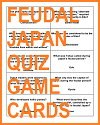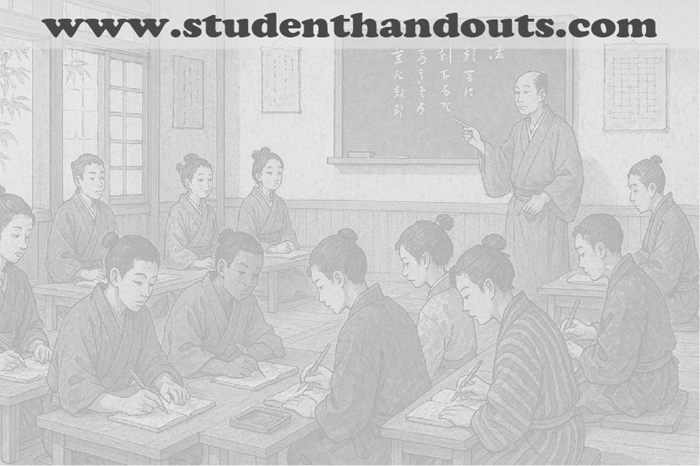Educational games, online and physical, can be an incredibly powerful and engaging tool for helping your high school World History students learn about the Edo period in Japan. This period, which lasted from 1603 to 1868, was marked by strict social order, economic growth, isolationist policies, and the rise of urban culture. Through interactive gameplay, students can explore these complex historical elements in a way that promotes critical thinking and active learning.
For example, a simulation game might allow students to role-play as members of different social classes--samurai, farmers, merchants, or artisans--each with unique roles and limitations. This helps students understand the rigid class system and how it shaped daily life. Strategy games could simulate political decisions by the Tokugawa shogunate, such as trade restrictions, internal conflicts, or managing foreign relations, encouraging students to consider the consequences of isolation and centralized power.
Games also encourage collaboration and discussion, particularly when used in groups. Students learn to analyze situations, make historical decisions, and reflect on the outcomes--all of which deepen understanding. Visual elements, interactive storytelling, and challenges help reinforce content and make abstract ideas more relatable.
Overall, educational games turn historical content into an immersive experience, making the Edo period come alive while supporting retention, engagement, and a deeper appreciation for Japanese history.
|

















































